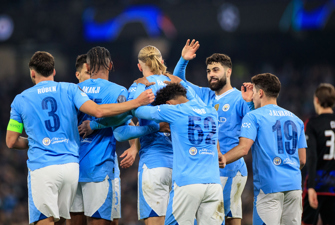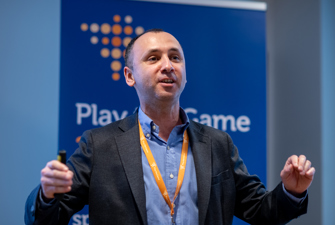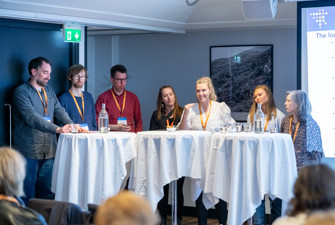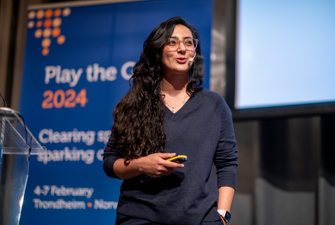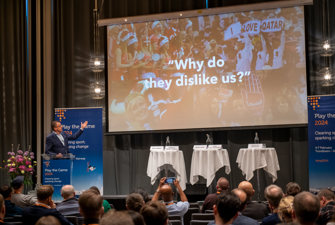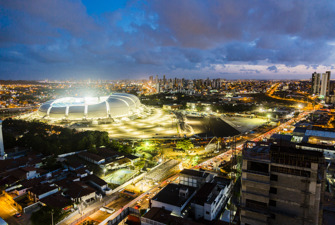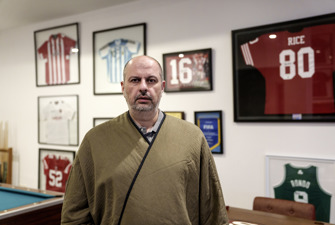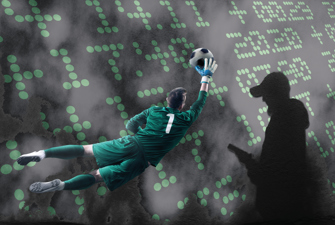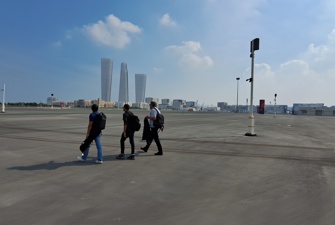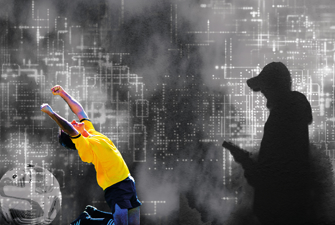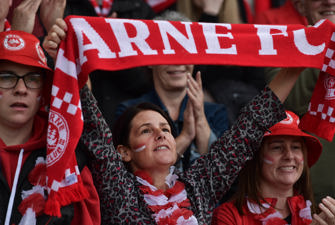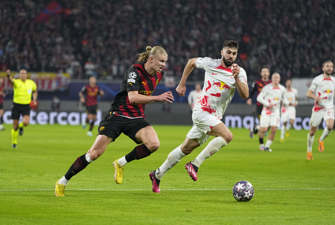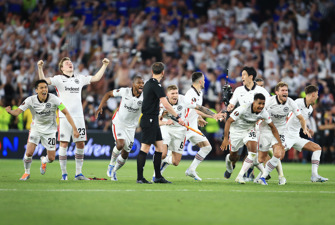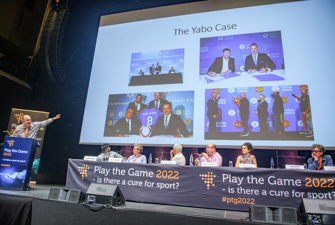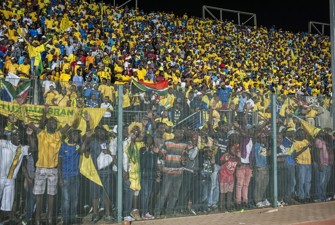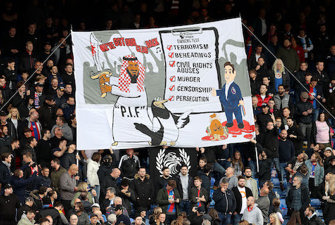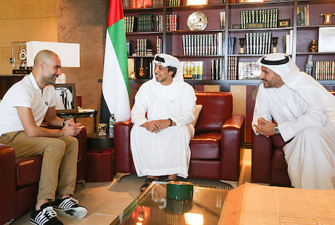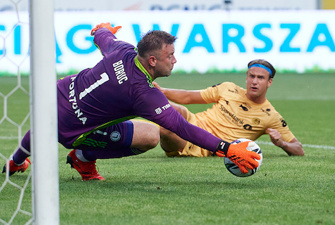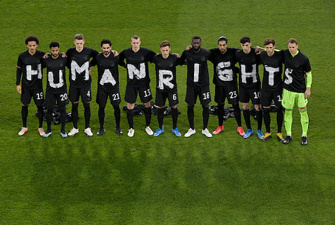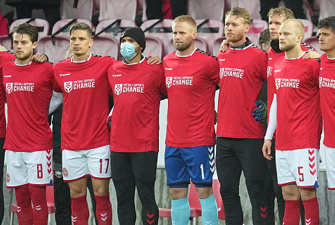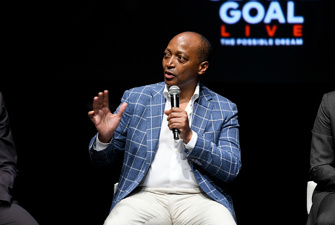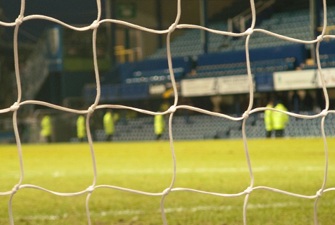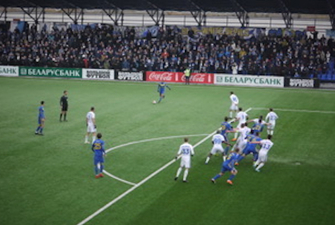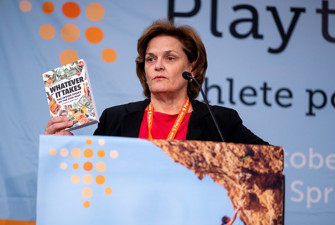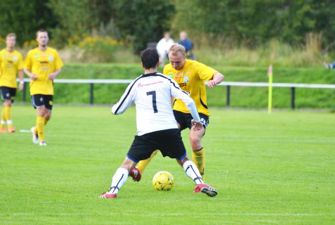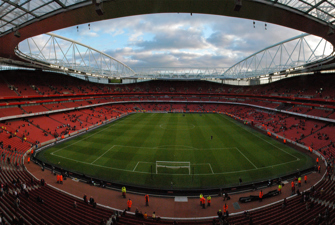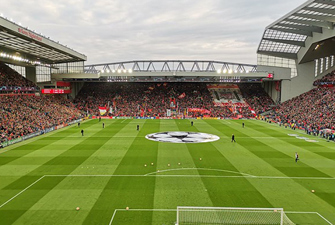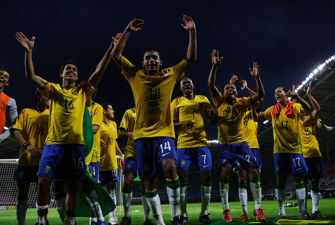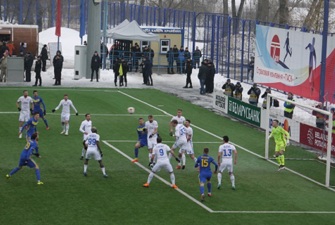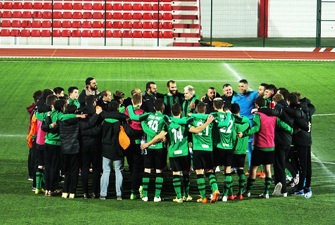A wave of violence among South America’s football fans
The World Cup in Brazil is not only challenged by the risk of civil unrest. Violence in and around football stadiums is notorious in South American football. The tournament’s immediate success will partly depend on the ability to curb the violent fans, but the problems go deeper, writes Javier Szlifman.
"For a country that will be hosting the World Cup, this is very sad," stated Vasco da Gama goalkeeper Alessandro about the incidents last December 8th, only two days after the 2014 World Cup fixture raffle, when four fans were seriously injured in violent confrontations during the match between AtléticoParanaense and Vasco da Gama in Curitiba, in the south of Brazil.
"A footballing country cannot live with violence in its stadiums," expressed President DilmaRousseff after the incidents. From Switzerland, the FIFA also repudiated the acts of violence and reported that during the World Cup there will be police forces outside the stadiums and private forces inside. However, this plan did not suffice in the match between Vasco and Paranaense, since the 80 guards inside the stadium were unable to control the rioting, and the intervention of the military police was necessary to curb violence.
Although no-one died during the incidents in Curitiba, the Brazilian soccer concluded 2013 with 30 fatalities related to incidents during football matches, according to a study conducted by the University of Rio de Janeiro. Lance, the most popular sports newspaper in the country, states that over 230 people have died in Brazil as a result of violence in football since 1988.
With only a few days to go before the start of the World Cup, the outlook for Brazilian soccer does not seem to have changed much. In February, a Santos fan, was beaten to death by rival hooligans after a match with São Paulo. And in May, Paula Ricardo Gomes da Silva, a Paraná fan, died after being hit by a water closet thrown by a group of hooligans from Santa Cruz, after a match in the Second Division. Corinthians’ and Ponte Preta’s players have been directly threatened by their fans in the past weeks.
The threat from hooligans
The question is if the World Cup will be affected by the violence created by fan groups that is notorious on the South American continent.
"The World Cup will not be an environment for violence, it’s a different audience," stated Aldo Rebelo, the Brazilian Sports Minister, recently. There will be over 170.000 public and private police officers guarding the safety of the Cup, amounting to a total budget of 870 million dollars. Some of the officers were sent to the United States to train in anti-terrorist tactics. It will represent the biggest safety operation in the history of the competition.
But the World Cup also represents an extraordinary event for both the players’ career and for the fans. Over 600 members of the Argentine barrasbravas (hooligans) are getting ready to travel to Brazil to cheer for Lionel Messi’s team. Their Brazilian colleagues will provide them with accommodation.
The Ministry of Justice of Brazil took the necessary precautions and requested from the Argentine authorities a list of the fans who have right to access to Argentine stadiums and those facing charges in court.
The members of United Argentine Fan Clubs filed a request to prevent the submission of this information. They also demonstrated at the gateway of the Argentine Football Association headquarters voicing out their claim and requesting tickets for the Argentine national team matches.
Finally, last April, an Argentine federal judge approved the submission of information about the most violent fans, but they will be travelling anyway at the risk of being denied entrance to Brazil or to the matches.
We may see a repetition of what happened during the 2010 World Cup in South Africa, when 29 Argentine fans were deported as soon as they landed on African soil. In spite of this, one Argentine hooligan died during a confrontation in Cape Town, after the Argentina versus Germany match.
A pattern of violence in Latin America
South America does not appear to be the most fertile continent for peaceful professional football. Statistics show that violence in relation to football increased in recent years.
In Argentina, a few months ago, football icon Lionel Messi participated in a video against violence in football. This video was released after one of the most tragic years in Argentine football. In 2013, 18 fans died in soccer-related events, accounting for the highest figure in the last 45 years. In 2014, there are two fatal victims so far. Currently, the Argentine league matches are played only with the presence of local fans to prevent acts of violence.
In Colombia, whose team will again take part in a World Cup after 16 years, violence peaked in 2013 with more than 40 fatalities related to football incidents. A number of measures from the Colombian government served to reduce the conflicts in the stadium. Nevertheless eight fans have died in the course of 2014.After a series of episodes in the beginning of this year, Uruguay’s government announced that the police will no longer offer its services on the inside of the most important stadium of the country. A similar situation took place in Ecuador in 2013.
Criminal underworld
It is the Argentine fans who most have developed violence as a tool for their cause. They have connected with leaders from sport and politics to obtain privileges and some of them are heavily involved in the criminal underworld.
In 2013 Cristian Favale, a hooligan for the team Defensa y Justicia in the Argentine second division was condemned to 15 years in prison for killing a political activist for the Partido Obrero (The Workers’ Party). A few weeks ago a former leader of the Defensa y Justicia fans received a similar sentence for a killing that happened in a fight for control over the fan grouping.
Groups connected with the narcotics trade in the city of Rosario are strongly represented among the fans of Newell’s Old Boys.
And the leader of the hooligans of Colón de Santa Fé, a team recently relegated to the second division, has been arrested and charged with homicide.
These kind of persons are not necessarily socially marginalized, but in many cases middle class fans who have taken to football as a way to gain money and power. In countries like Brazil, Uruguay, Ecuador and Colombia, among others, the fan groups are generally appearing as fully developed organisations who have managed to associate themselves with sports leaders to get advantages when they set out to support their team.
In Brazil the fans gather in so-called ‘Torcidas Organizadas’ who have their own president, treasurer and membership fees. Many have front line fighters, some of them armed. They usually receive tickets and merchandise as remuneration from their teams.
Last year members of ‘Gavioes da Fiel’, fans of the Corinthians, were responsible for the death of Kevín Beltran, a child aged 14 years, in a match between the Brazilians and Bolivians San José de Oruro in Copa Libertadores.In spite of the differences between the countries, the common denominator is the regular violent practices.
Harder line before the World Cup
With regard to the upcoming World Cup, the Brazilian government passed a law in 2010 order to crack down on stadium incidents with more force. The rules now threaten with fines, entry prohibition and up to two years in prison for offensive chants, insults or signs in the stadiums. Also the reselling of tickets and match-fixing referees can be punished. On that occasion the Brazilian authorities underlined the importance of creating a "climate of peace" in the stadia.
Also in Argentina the response to deaths and violent acts usually takes the same direction: harder punishments, suspending of stadiums or prohibition of fans from the away team.
The authorities, however, rarely deal with the social conditions that allow violence to break out at sports events. As long as many fans regard their violent practices as legitimate and the authorities do not work to prevent these actions, there is little hope for good news ahead.





